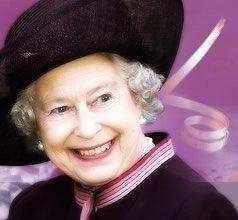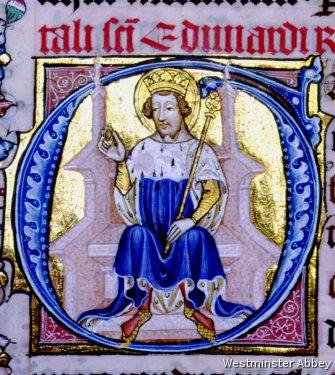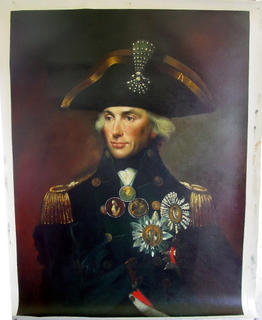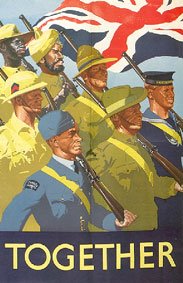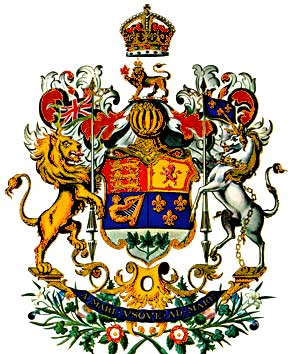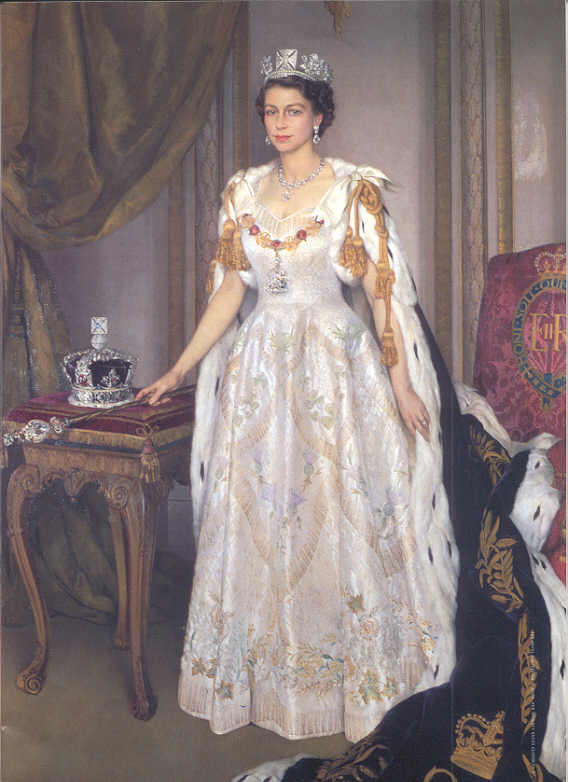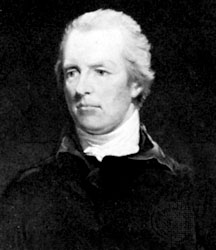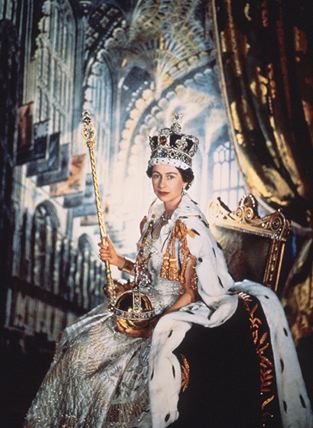[+] HONOURING OUR PATRON, SIR WINSTON CHURCHILL, VICTOR OF THE ENGLISH-SPEAKING PEOPLES
[+] HONOURING OUR QUEEN, ELIZABETH THE SECOND, ON THE 80TH YEAR OF HER BIRTH (1926 - 2006)
[+] HONOURING OUR KING, SAINT EDWARD THE CONFESSOR, ON THE 1000TH YEAR OF HIS BIRTH (1005 - 2005)
[+] HONOURING OUR HERO, LORD NELSON, ON THE BICENTENNIAL OF THE BATTLE OF TRAFALGAR (1805 - 2005)
[+] HONOURING OUR SONS, THE QUEEN'S COMMONWEALTH SOLDIERS KILLED IN THE 'WAR ON TERROR'
[+] HONOURING OUR VETS ON THE 150TH ANNIVERSARY OF THE VICTORIA CROSS (1856 - 2006)
 Donald Rumsfeld is a guy the media loves to hate (not without some justification), so when the great pile-on happened two weeks ago, it seemed the best thing to do was just to ignore it. However, in announcing his resignation as Secretary of Defense, Donald Rumsfeld paraphrased Winston Churchill, and the Churchill Centre -- those scholars charged with the special duty to guard and preserve his legacy for future generations -- is none too happy about it. The Centre's editor offers the correct version of the quotation, as well as advice for other politicians who might choose to quote Churchill:
Donald Rumsfeld is a guy the media loves to hate (not without some justification), so when the great pile-on happened two weeks ago, it seemed the best thing to do was just to ignore it. However, in announcing his resignation as Secretary of Defense, Donald Rumsfeld paraphrased Winston Churchill, and the Churchill Centre -- those scholars charged with the special duty to guard and preserve his legacy for future generations -- is none too happy about it. The Centre's editor offers the correct version of the quotation, as well as advice for other politicians who might choose to quote Churchill:-------
Dateline Washington, 8 November 2006. Donald Rumsfeld, President Bush's Secretary of Defense who resigned after the November election, has been "controversial" (to put it mildly) since things in Iraq started to go bad. When things were going better, in 2003 with coalition forces sweeping into Baghdad, the media doted on his every quip.
A strong admirer of Churchill, Rumsfeld has quoted him on many occasions lately, getting only into more hot water. In late August Rumsfeld said that his detractors reminded him of Hitler's appeasers: "Each one hopes that if he feeds the crocodile enough, the crocodile will eat him last." New York Times critic Frank Rich shot back on September 3rd: "He can quote Churchill all he wants, but if he wants to self-righteously use [sic] that argument to smear others, the record shows that Mr. Rumsfeld cozied up to the crocodile of Baghdad as smarmily as anyone."
In his departure remarks at the White House on October 9th Rumsfeld said, “I call to mind the words of Winston Churchill, who said something like this: ‘I have benefited greatly from criticism and at no time have I suffered a lack thereof.’” The Secretary quite properly admitted he was not quoting verbatim. The actual quotation is: "I have derived continued benefit from criticism at all periods of my life and I do not remember any time when I was ever short of it." (House of Commons, 27 November 1914).
Anorak, a British website "keeping tabs on the tabloids," took that up with a Churchill reference of its own: "As another wartime leader of old might have put it, he came, he saw, he almost conquered but lacked a viable and speedy exit strategy." Anorak referred to Churchill's comment on General Charles Monro, who took command of British forces at Gallipoli in October 1915 and supervised their evacuation: "General Monro was an officer of swift decision. He came, he saw, he capitulated." (The World Crisis II, 489).
We could have provided Donald Rumsfeld with much more pointed remarks:
"We do not resent the well-meant criticism of any man who wishes to win the war. We do not shrink from any fair criticism, and that is the most dangerous of all. On the contrary, we take it earnestly to heart and seek to profit by it. Criticism in the body politic is like pain in the human body. It is not pleasant, but where would the body be without it? No health or sensibility would be possible without continued correctives and warnings of pain." (House of Commons, 27 January 1940.)And in tribute to the department he was leaving:
"I am going to do something that has never been done before, and I hope the House will not be shocked at the breach of precedent. I am going to make public a word of praise for the War Office. In all the forty years I have served in this House I have heard that Department steadily abused before, during, and after our various wars. And if my memory serves me aright I have frequently taken part in the well-merited criticism which was their lot." (House of Commons, 2 August 1944.)We wish that Mr. Rumsfeld had come to us. We offer politicians of all persuasions a Churchillism for every occasion.
Richard M. Langworth, Editor, Finest Hour
The Churchill Centre
www.winstonchurchill.org


